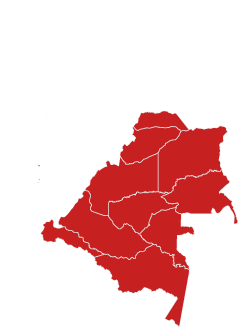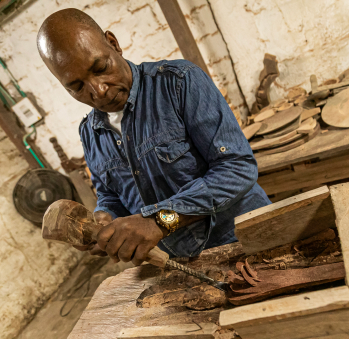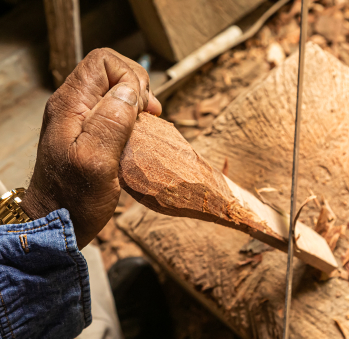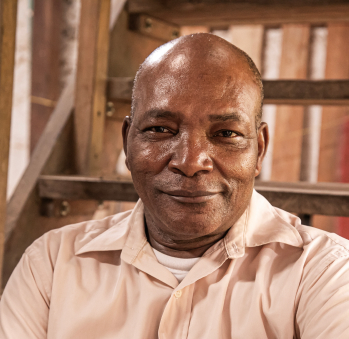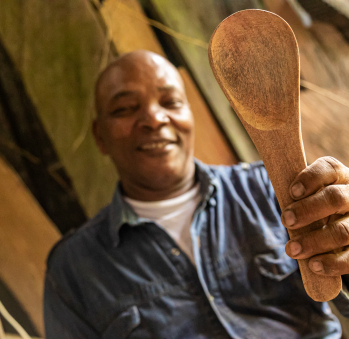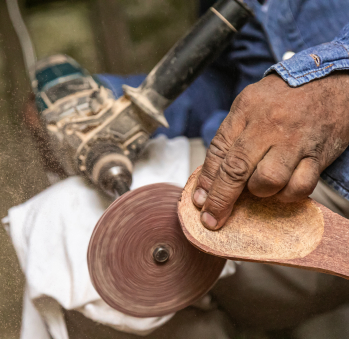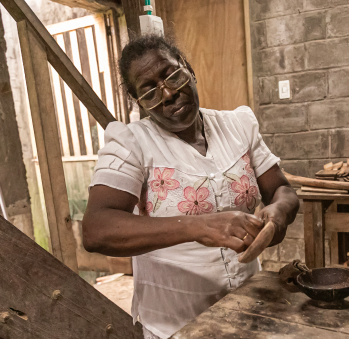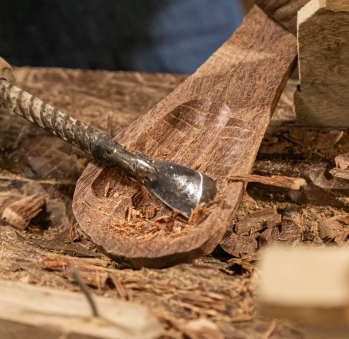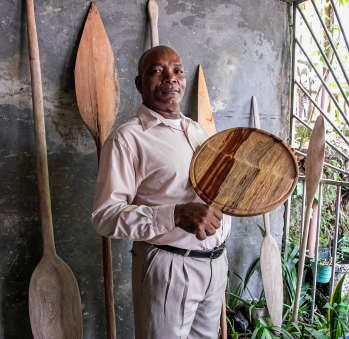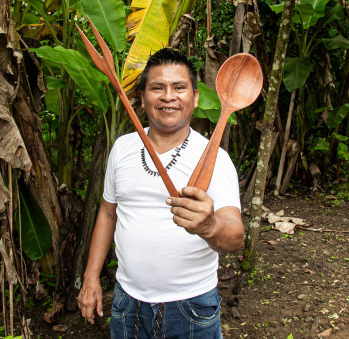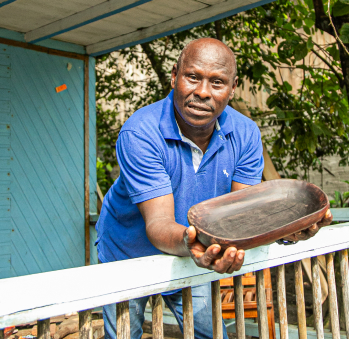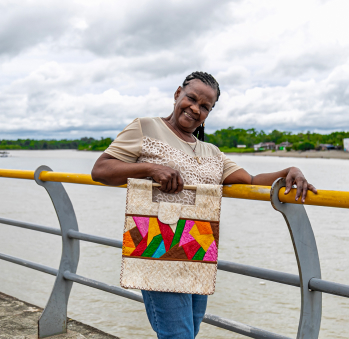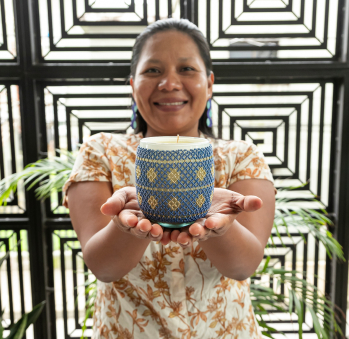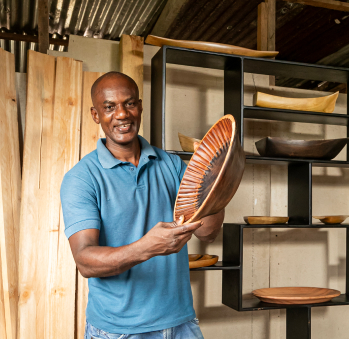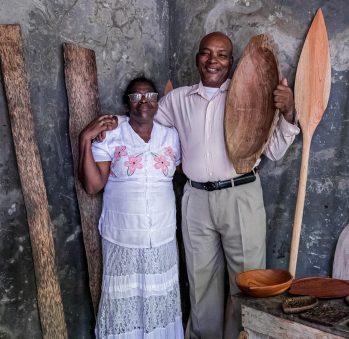José Félix Murillo y Luz Mila Benitez
Workshop: Choiba Chocó
Craft: Trabajos en madera
Trail: Choco Route
Location: Quibdó, Chocó
The Murillo family could be aptly described using local popular sayings. “A united family will never be defeated” seems to embody the Murillo motto, as the children inherit the talent of their father, José Félix. Conversely, “Behind every great man is a great woman” perfectly fits Luz Mila, a woman who shines in her own right and manages their household adeptly. Effortlessly, she recounts the family’s history, recalling her husband’s origins with details that reflect the depth of their journey together. Their joyful conversation mirrors the camaraderie of two accomplices who deeply admire each other.
Born in the jurisdiction of El Aguacate, near the Condoto River in the San Juan region of Chocó, José Félix holds a distant memory of one of his great-grandmothers, an indigenous woman who passed down the tradition of iraca weaving to the family. Women wove baskets for gathering yams or catching fish, locally known as “el ahorro.” Iraca was also used to craft fans for kindling the wood stove’s fire—an everyday artistry that has been part of the lives of many Colombians for decades.
Amidst their narrative emerges another craft: woodcarving. José Felix’s father skillfully carved boats and canoes for traversing the Condoto River. Initially, the couple worked in mines, utilizing wooden pans crafted by José Félix for gold prospecting on the grandfather’s lands. Luz Mary emphasizes that these pans must be made of fine woods like guamo or cedro caracol—resilient woods resistant to water and rocks that won’t crack like softer woods.
This married couple harmonizes like a chorus, each complementing the other. José Félix looks at Luz Mila with a knowing smile, aware that she can articulate what he struggles to express. Yet when he speaks, it’s with unwavering steadiness, joy, and experience. He graciously lets her recount how artisanal crafts repeatedly returned to their lives and eventually became an integral part of it. Luz Mila recalls a particular incident—the breaking of a metal ladle while cooking rice at a mine. In an act of resourcefulness, José Félix fashioned a ladle using only a machete, following in his father’s footsteps. It was later suggested that carving could be a livelihood, a path he took after leaving mining due to violence, but that’s a story for another time.
Upon their arrival in Quibdó, Luz Mila reminisces about wandering the streets, vending small spoons, ladles, and wooden kitchenware crafted by her husband. A vivid memory persists of an encounter with an Artesanías de Colombia designer more than a decade ago, who inquired about the creator of such products while she was delivering an order at a hardware store. Presently, José Félix works with guamo, choibá, cedro caracol, and chonta, exalting the unique grain of each wood in his creations. He crafts substantial fruit bowls, vessels, pans, and trays, acknowledging that his best creations are illuminated by God, whom they devoutly worship. Thus, their days pass with gratitude for the life they’ve built together.
Craft
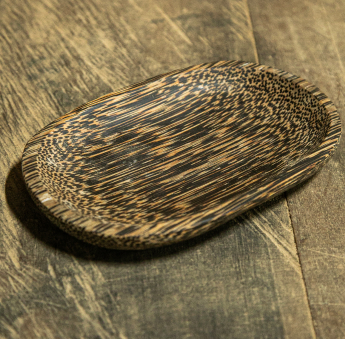
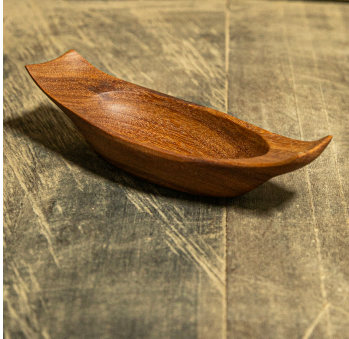
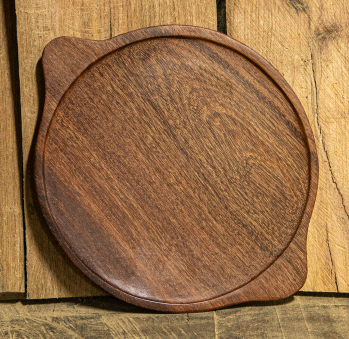
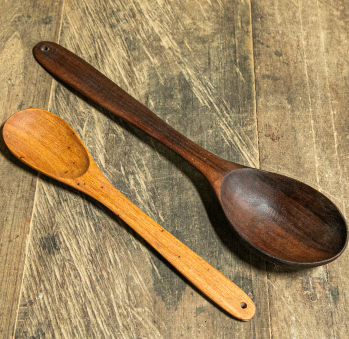
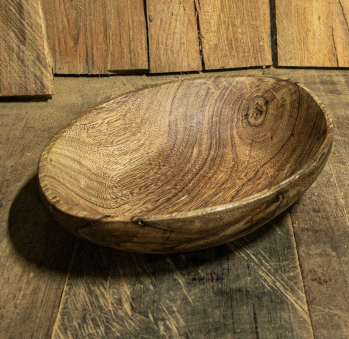
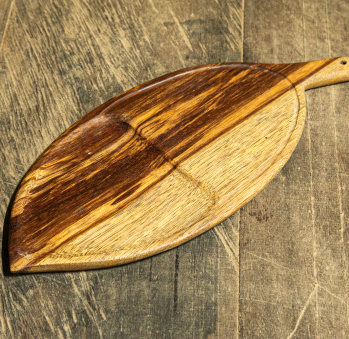
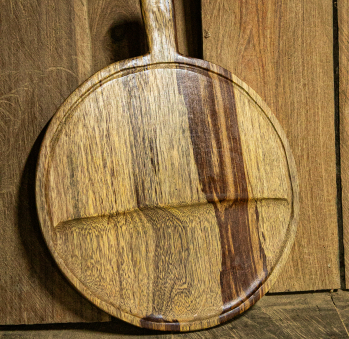
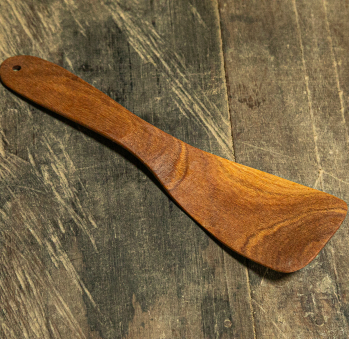
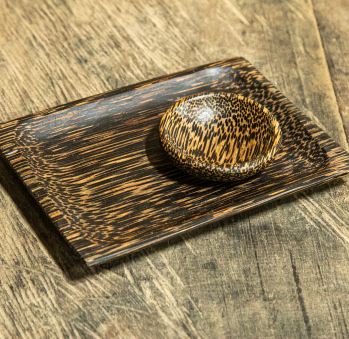
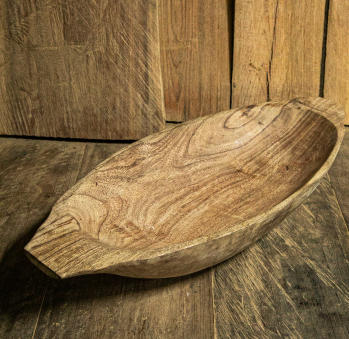










Artisans along the way
Artisans along the way
No puede copiar contenido de esta página

